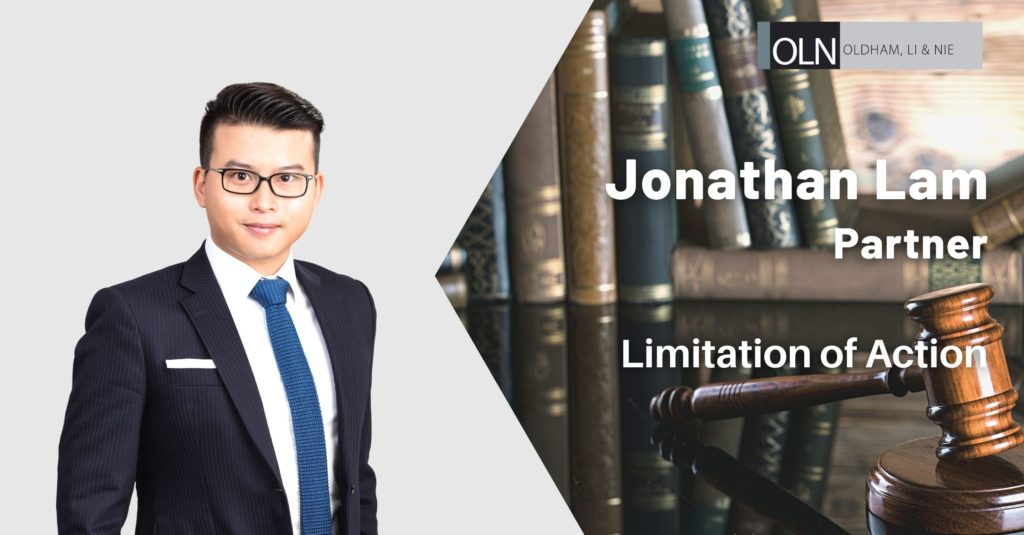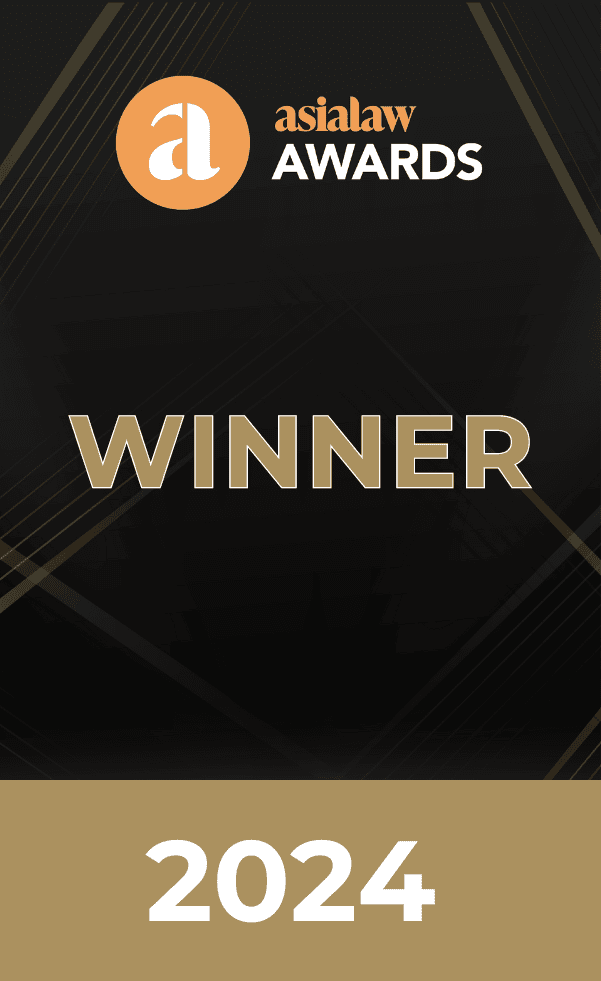Limitation of Action
25 Mar 2022

In the midst of COVID-19, where everything seems to be delayed and rescheduled, one may be under the illusion that pursuing a legal action to recover damages could wait. However, it should be borne in mind that Hong Kong has limitation period on bringing civil actions. If these are not adhered to, one may potentially face the grave consequences of an action being time-barred, such that all the rights and recourse against the wrongdoer could vanish.
In Hong Kong, the limitation of civil actions is governed by the Limitation Ordinance (Cap. 347) (“LO”). It is important for one to observe the limitation period for different types of action.
A. Contract
In the case of a simple contract, the limitation period is 6 years from the date of accrual of the cause of action (s4 LO). For the recovery of outstanding rent, the limitation period is also 6 years from the date on which the rent became due (s18 LO).
A1. Monies secured by a mortgage or other charge on property
In the case where monies are secured by a mortgage or “other charge on property”, the limitation period is 12 years from the date of the accrual of the cause of action for the recovery of the “principal sum of money” (s19(1) LO). On the other hand, for the recovery of “arrears of interest” in respect of any sum of money secured by “a mortgage or other charge on property”, the limitation period is only 6 years from the date on which interest became due (s19(5) LO).
In our day-to-day commercial setting, there are a lot of contracts which are secured by charge on shares, or other properties. These share charges are also often registered in the Companies Registry in order to ensure their validity and priority. An interesting issue then arises as to whether these contracts, which are secured by share charges, can be regarded as secured by “other charge on property”, such that an innocent party can enjoy the limitation period of 12 years rather than 6 years (as in simple contract)?
Whilst there is no direct case law on this point, it appears that an innocent party may sometimes be able to enjoy the benefit of 12 years limitation period, for recovering the “principal sum of money” under the contract. In the equivalent UK provision, in a case concerning mortgage gold bonds, it is held that limitation period to recover the outstanding principal is 12 years[1].
A2. Acknowledgment and part payment
In relation to any recovery for debt or other liquidated pecuniary claim, if there is acknowledgement or payment from the debtor, the right of accrual of action is deferred to the said acknowledgement or the last payment (s23(3) LO). Such acknowledgment, however, must be in writing and signed by the person making the acknowledgment (s24(1) LO).
B. Tort of negligence (other than personal injuries)
For an action regarding tort of negligence (other than personal injuries), the limitation period is 6 years from the date of accrual of the action (s4(1) LO).
However, if damage caused is latent (I.e. not easily discoverable), such that the Plaintiff does not know of negligence until a later date when damage begins to surface, the limitation period is either six years from the date of accrual of the action, or three years from the date of knowledge acquired to bring an action for damages, whichever later (s31(4)). As held in the HK Court of Final Appeal in the case Kensland[2], a cause of a cause of action in tort accrues when the damage which results from the tortuous conduct is “real, as distinct from minimal or negligible and is actual, as opposed to purely contingent”[3].
C. Recovery of trust property
For the recovery of trust property or a claim for any breach of trust by a beneficiary, the limitation period is generally 6 years from the date of the accrual of cause of action (s20(2) LO). However, in the situation where the breach of trust is committed fraudulently, there is no limited period to bring an action (s20(1) LO).
D. Personal injuries
For all actions for damages for negligence, nuisance or breach of duty in respect of personal injuries, the time limit for the Plaintiff to bring an action is 3 years from the date on which the cause of action accrued, or the date of the Plaintiff’s knowledge (if later) (s27(1) LO).
However, in the case when the Plaintiff is suffering from disabilities, it is provided that the period of limitation is extended to 6 years from the date when the person cease to be under a disability or died, whichever event first occurred (s22(1) LO). As regards the definition of “disability”, whilst a person shall be deemed to be under a disability whilst he/she is an infant or of unsound mind (s22(3) LO), it has also been held that a liberal approach should be taken to cover cases where a person cannot manage his own affairs.
E. General extension of the limitation period
Apart from the limited exceptions provided for the specific cause of action as stated above, there are three general exceptions accorded to the Plaintiff, which are:-
(1) The action is based upon the fraud of the Defendant;
(2) Any fact relevant to the Plaintiff’s right of action has been deliberately concealed from Plaintiff by the Defendant; or
(3) The action is for relief from the consequences of a mistake,
The limitation period shall not begin to run until the Plaintiff, has discovered or can with reasonable diligence have discovered, the fraud, concealment or mistake committed (s26(1) LO).
It must be noted, however, the above general extension does not apply to recover any property from a purchaser for value without notice of the said concealment, fraud and mistake (s26(4); s26(5) LO).
F. The use of protective writ
In light of severe consequences of one’s claim being time-barred, in the event the time limit is imminent, it is always advisable, and indeed rather common, for the Plaintiff to file a Writ within the time limit to protect its position. Such a Writ is used primarily to prevent the Plaintiff’s claim from being time-barred, so such a Writ is commonly termed “protective writ”.
Once a “protective writ” has been filed with the Court, the Plaintiff is regarded as having brought an action in law, and will thus not be deprived of time limitation.
A Writ need not be served immediately and can be served within 12 months after the date of its issuance[4]. Effectively, this gives the Plaintiff another 12 months to collate necessary evidence and to precisely formulate its claim before formally serving the Writ to the Defendant, such that all filing dates will start running.
Should you need any assistance on the advice regarding limitation of your potential claim, please feel free to contact us.
Disclaimer: This article is for reference only. Nothing herein shall be construed as Hong Kong legal advice or any legal advice for that matter to any person. Oldham, Li & Nie shall not be held liable for any loss and/or damage incurred by any person acting as a result of the materials contained in this article.
[1] Re Compania de Electricidad de la Provincia de Buenos Aires Ltd [1980] Ch 146
[2] [2008] 11 HKCFAR 237
[3] [2008] HKCFA 13 para 51
[4] O.6 r. 8
 Suite 503, 5/F, St. George's Building, 2 Ice House Street, Central, Hong Kong
Suite 503, 5/F, St. George's Building, 2 Ice House Street, Central, Hong Kong +852 2868 0696
+852 2868 0696















